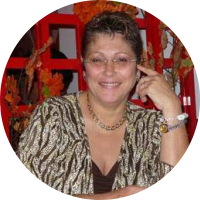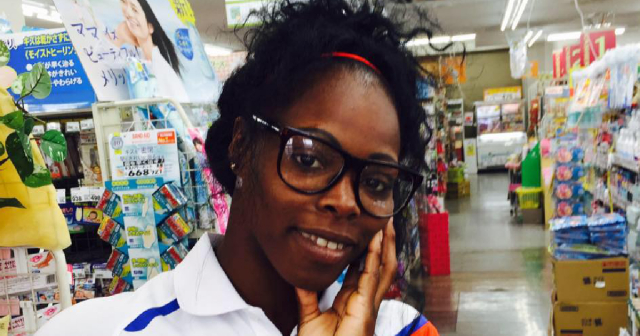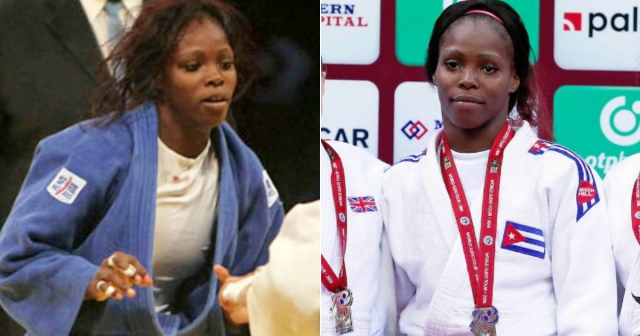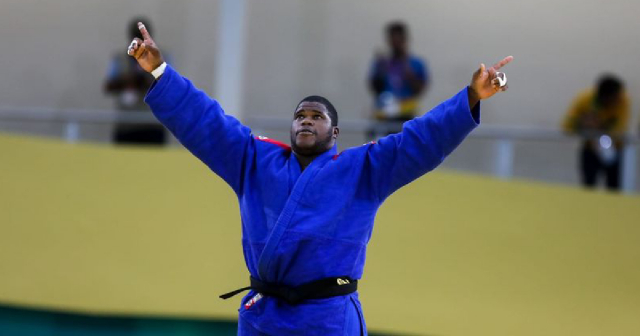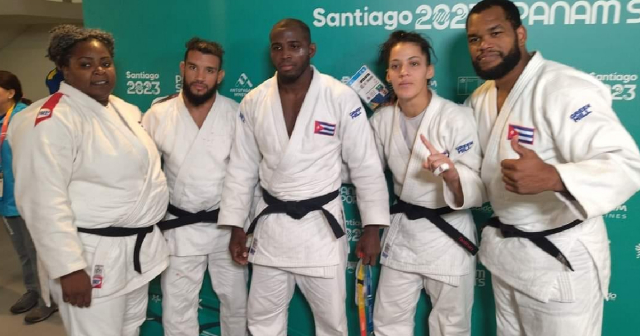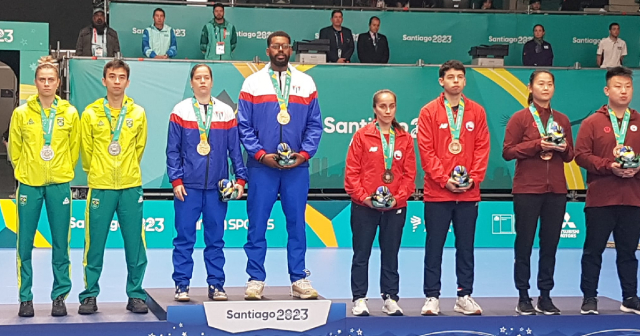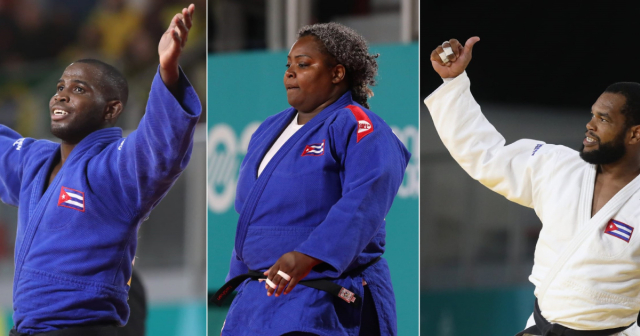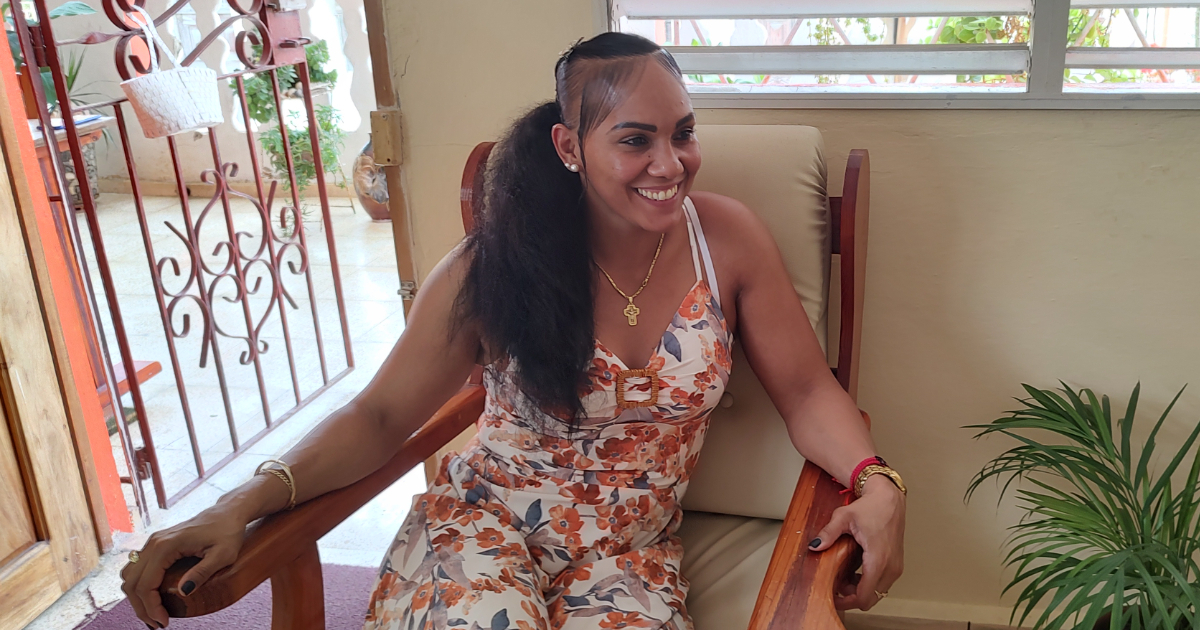
Some years ago, during the first decade of this century, during a report at the judo gym in Cerro Pelado, I witnessed a conversation between Professor Ronaldo Veitía and the parents of one of his disciples, the youngOnyx Cortes, who I still seem to see: active, combative and reflective.
For fifteen years, the capital city that today, kindly, agreed to this interview, would be part of the national preselection.
What are you doing currently?
I own a cafeteria in the municipality of Playa and I really don't have time to breathe. I'm doing well, thank God, with a three-year-old girl who is my life. My parents, my 96-year-old grandmother, the baby and I form a harmonious family of which I am proud.
Would you like to be a coach?
Of course, I would love to. Let's wait and see what life has in store for me. Yordanis Arencibia, current technical head of Cuban judo, has spoken with me but nothing has been finalized.
Onix take us to your beginnings when you dreamed of being a great on the tatami.
Since I was a child I liked to run, ride a bike and skate, I participated in all the games we did in Physical Education and I always excelled.
I participated in several competitions at the school, municipality and provincial levels; They started following me, I promised. One day a teacher came to school looking for children to practice judo and there was Onix ready to do battle.
I start practicing judo; I remember Andrés, my first coach; then to Alfredo Osma, who took me to different competitions. I was held back because there were no girls who wanted to practice judo; They said that the body was disfigured… hahaha.
At that time I would stand by the mattress window and watch the boys train. My mom approached the teacher and asked if I could train with them and he said yes, he had already heard about me.
This is how I resume my contact with kimonos, now with Professor Luis, a person whom I love and respect very much. He was in charge of taking me to Andrés Franco Ramos, who finally paved the way for me to the national team, since he coached me in the EIDE “Mártires de Barbados” for four years and I owe much of what I know to him.
A happy stage began for me: 3 gold medals and one bronze in School Games, even becoming the most outstanding athlete in combat sports. Thus, concluding that competition, Professor Santiago Chinea, coach of the national team, informed me that I should appear at Cerro Pelado on August 10, 2004.
At 15 years old do you reach high performance?
Well yes. I entered that gym that was my home for 15 years without going through any ESPA, when at that time it was an essential link in the pyramid.
I directly came to be directed by the architect of the triumphs of women's judo, Professor Ronaldo Veitía. I was very well prepared both physically and technically; Julita, I don't brag, but anyone who remembers my beginnings knows what I'm talking about.
Was Veitía your coach?
There was no coach there to assist you directly; It was a collective in which everyone contributed their experiences, they were all our teachers. I start in the 63 kg division, which is the weight with which I won the world youth title at 17 years old.
A few months later I go on the European tour and get my first bronze medal in Hamburg, a senior competition that is now part of the Grand Prix circuit, formerly World Cup stops.
Have you ever had problems with your weight?
I was doing very well, I had already been a medalist as I told you, but the group of coaches decided to upgrade me to the 70 kg category, a decision that time showed was not the right one. I think that if I had stayed at 63 kilos, my career would have been much more successful.
The Pan American Sports Championship (bronze) and the Rio 2007 Pan American Games arrive and at just 18 years old I participated with a significant injury to my shoulder, a dislocation, with which I had competed in the Alba Games and the “Golden Judoguis” tournament.
Veitía trusted me; However, my shoulder had suffered too much. I was very well prepared but it was not enough and I lost my fight for bronze. There came a moment of darkness in my career: a useless shoulder, arriving in Havana directly to the operating room of the “Frank País” hospital, where Dr. Liván, to whom I owe everything, saves my shoulder and returns me to discharge. competition six months later.
Is this why you are not attending the 2008 Beijing Games?
Yes, and not only did I lose them but I did not return to the international arena until 2010. I was still at 70 kilos, a weight that I did very easily since I was around 67.
On multiple occasions I experienced a day of training at Cerro Pelado under the command of Veitía; From your point of view, what was it like?
Phew! There was no rest. We started very early, 8 am and we had to be formed; We trained until 11:30 am, then we had lunch and at just 12:30 pm we had to be sleeping until 3:30 pm when the second session began. This was daily, until 5:30 or 6 pm; I remember that after arriving and taking a bath, I had no desire to eat; only, sleep.
On more than one occasion my cameraman and I would arrive and see the judokas running on the track and when I asked the Buddha, he would answer: “one minute late, one lap; five minutes late, five laps” And I think that that strict disciplinary system had a lot to do with the great successes of Cuban judo, which are no longer seen.
In relation to this, Onix, I know that many of you worshiped Veitía and others did not, which side are you on?
Look Julita, remembering the bad is useless: you don't grow with the bad. In advance I answer that I am on the side of those who watch and follow the good things of Veiti; I admire the Buddha every day in this world, as you tell him.
From everything in life you should take the good and even more so coming from a director like Veiti, the fat one, the man who was able to keep Cuban women's judo for more than 20 years in the world elite and with different generations. He was very strong with us; They were also other times where education and upbringing were different, at least that's how I see it.
If he had not been like that, if we did not value his good things, what could he have gotten from us? We are an entire team with important results, titles that not all athletes in the world have.
I always remember Veitía because he taught us to be strong, he educated us, he disciplined us, he changed our mentality; We are strong. I feel like that, wanting to take on the world and do it well.
I recognize its virtues; You cannot cover the sun with one finger, perhaps your methods were not the best but let someone else come and do it better; that remains to be proven.
If you had to choose between Driulis González and Idalis Ortiz, both Olympic champions and with five medals in total in summer events, which one would you choose?
Very difficult! Driulis is my emblematic figure, the judoka I always wanted to be, my idol; Idalis, my classmate, on trips, in competitions... everything! We have been together since we were 15. Tell me what to tell you? Only that Driulis is, for me, the best judoka in the world; You can't imagine what kind of woman that is, her willpower, her courage.
You have a beautiful story: bronze medalist in the World Cup in Shelyabinsk, Russia 2014 and also third in teams in the world competitions of Salvador de Bahia 2010, Paris 2011 (fifth individually) and Rio 2013 but you have not been able to reach the Olympic podiums.
Sport Julita hit me hard, because despite having had good results I could have given much more, put the stamp on it. I won the final of the Pan American Games in Guadalajara in 2011 against none other than the Colombian Yuri Albear, three-time world champion and I dreamed of London, my great possibility of an Olympic medal.
I trained to get on that podium, but I came in after training. You know this like no one else: the athlete is trained for fundamental competition, this is how the mesos or macros are adjusted.
Well, a month before I was perfect, at my best, in full sporting shape; I arrived at the British appointment tired. I, so strong and with good technique, could do nothing. My magnificent base was of no use, nor my magnificent mastery of the tachi waza (standing technique)... I fell in the first fight against the Japanese Haruca Kachimoto, who couldn't drag me!
In total, Ónix, in addition to the continental gold in Guadalajara, was second in Toronto 2015 and third in Lima 2019, as well as bronze at the Centrocaribes in Barranquilla 2018. She did not qualify for the Rio Olympics.
When do you say goodbye?
I'm retiring in 2019, after Peru; I was making a great effort, but I already had another important injury that I couldn't handle and it was my knee, which had surgery on the medial ligament, meniscus, cartilage and cruciate. This did end my career and in December 2019 the news came that I was pregnant.
In 2020, my Olympic medal, my daughter Dafne Antonela, was born. I finished competing precisely in December 2019 at 30 years old.
Tell me about the combat that is not forgotten.
Look, this fight was precisely with Driulis González, unforgettable! In 2004, the national team arrived from Athens. They join the preparation, I just got up there when I was 15 years old and suddenly the teacher says: González and Cortés to the mattress!
And what happened?
I won! Julita, I breathed judo, ate judo and slept and dreamed of achieving the impossible because I won that fight against who at that time was the most successful athlete and my idol, Driulis González.
I was a 15-year-old girl and I had the opportunity to compete with renowned athletes from all over the planet but I will never be able to forget that victory, she knows it! jjjjj
The current Cuban women's judo is not good. Is it that Veitía is not there, is it that the base selection is bad or the base itself is bad, is it that the conditions of Cerro Pelado are around mediocrity and they couldn't be worse?
This decline has been going on for years; It's not from now. I have to tell you that now it has increased. For years I have observed that talents have not arrived. Those who enter come with a physical and technical deficit, especially the latter, which is a key point. The base is very deficient.
Doing a judoka is not a one-day thing. The great results of Cuban judo have always been based on the physical strength of its athletes coupled with the technical level. This is our history: Olympic, world, continental, Cup and Grand Prix champions, and now? It is the worst moment in women's judo and of course, Veitía's absence is felt but, of course, it is not just that.
It is better not to talk about the conditions of Cerro Pelado; From those gyms, from those courts, excellent judokas came out. Why refer to the state they are currently in if it is known by everyone?
What do you think?
COMMENTFiled in:
